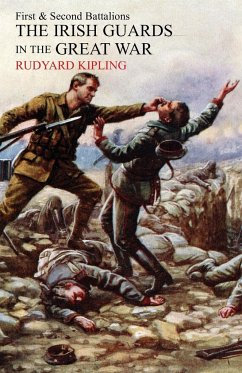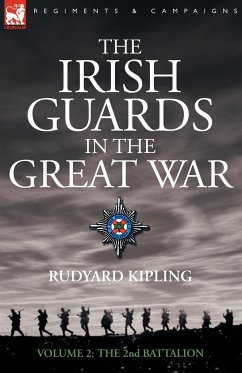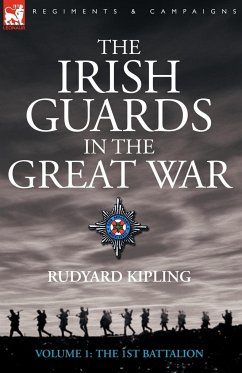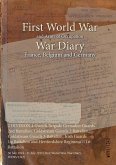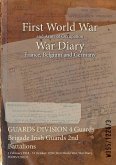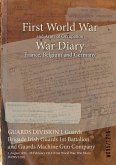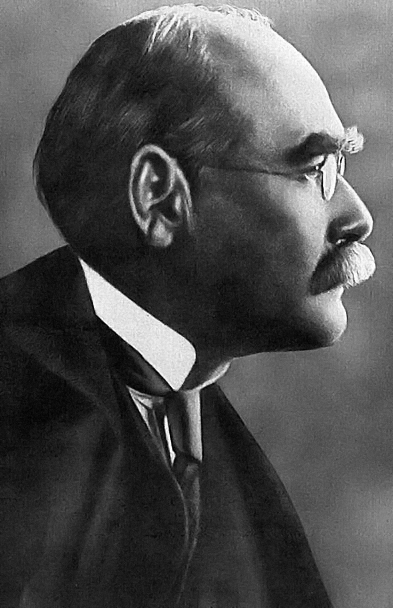The Irish Guards were raised in April 1900 under the authority of Army Order 77 of that month, which stated: 'Her Majesty the Queen, having deemed it desirable to commemorate the bravery shown by the Irish regiments in the recent operations in South Africa, has been graciously pleased to command that an Irish regiment of Foot Guards be formed. This regiment will be designated - "The Irish Guards".' As the Fourth Regiment of Foot Guards, the regiment has the buttons on the tunic in two groups of four, and the plume on the bearskin cap is blue, worn on the right. The regimental march is 'St Patrick's Day' and the slow march 'Let Erin Remember.' When war broke out in August 1914 the 1st Battalion (there was only one battalion, then) was in Wellington Barracks (London), one of the four guards battalions that made up the 4th (Guards) Brigade, 2nd Infantry Division. The battalion landed in France on 13 August 1914. In July 1915 Kitchener obtained the permission of the King to form a Guards Division, an idea he had not shared with the War Cabinet nor with the C in C in France. As there were only ten battalions of Guards at the time, including the recently (February 1915) formed Welsh Guards, he gave orders for another Grenadier and Irish Guards battalion to be raised to make up the required twelve battalions; a fourth Coldstream battalion was also formed as the divisional Pioneer battalion. Thus, on 18 July 1915 the 2nd Battalion Irish Guards came into existence, formed from the 2nd Reserve Battalion which itself had been created in August 1914. The author has followed the same pattern with both 1st & 2nd Battalions, concentrating on the events that affected the battalions and making use of official and private records, diaries and personal interviews with officers and men of the battalions. The book teems with Kipling's characteristic powers of description, his meticulous eye for detail and his empathy with fighting men at their last extremity as he narrates the Guards' progress from Mons to the Armistice via the fighting at La Bassee, Loos, Laventie, Ypres, the Somme, Gouzeaucourt and Arras.
Hinweis: Dieser Artikel kann nur an eine deutsche Lieferadresse ausgeliefert werden.
Hinweis: Dieser Artikel kann nur an eine deutsche Lieferadresse ausgeliefert werden.

